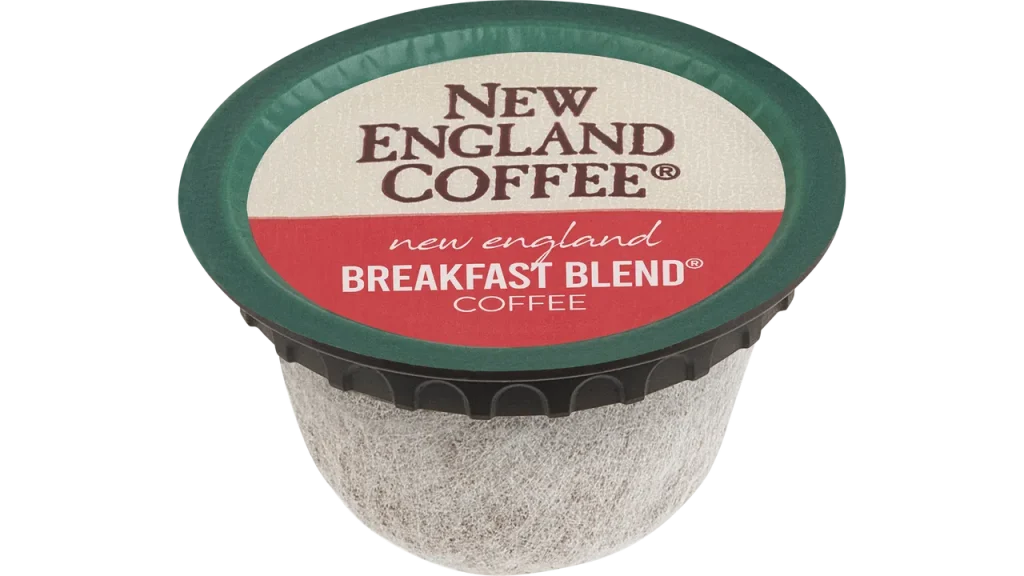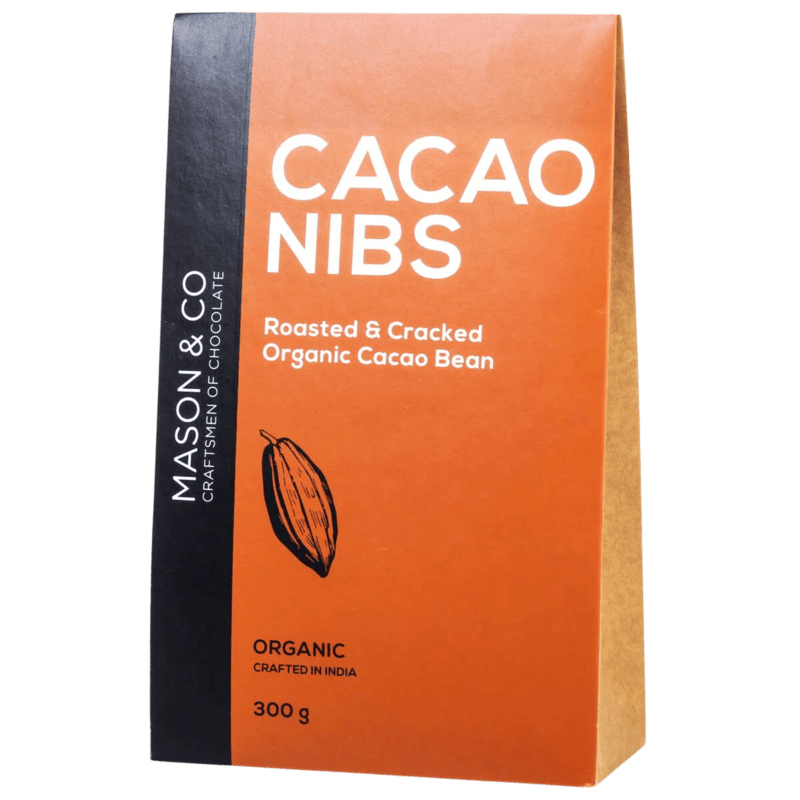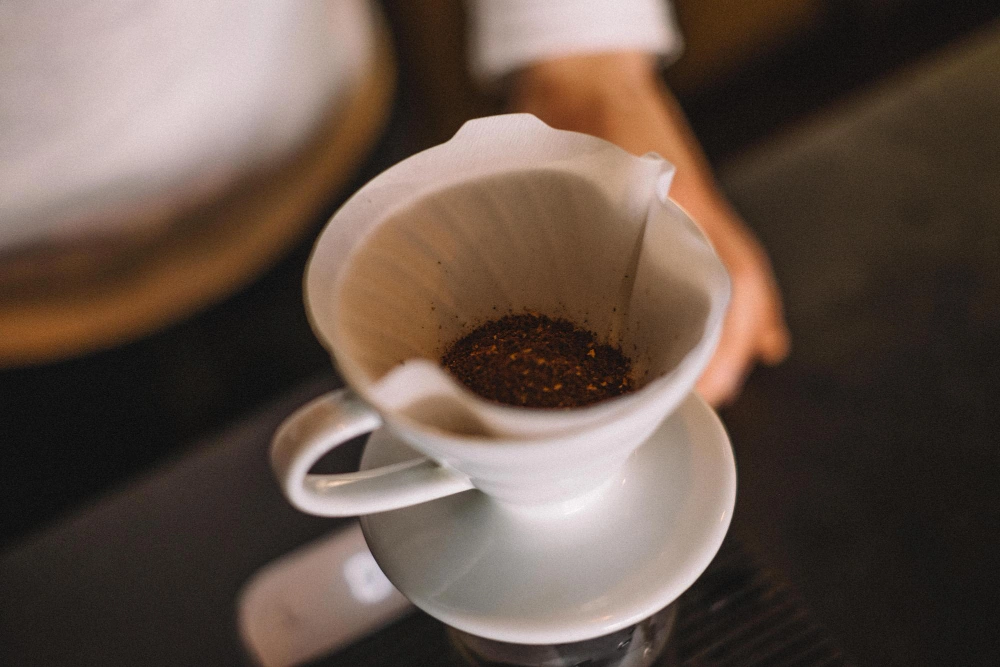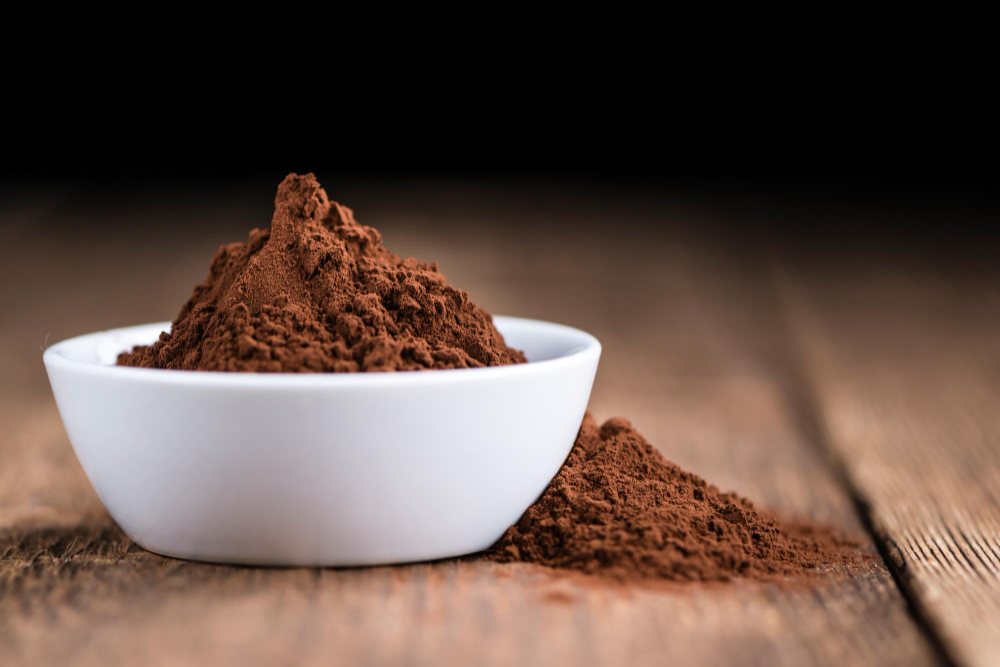Cocoa sustainability has emerged as a central pillar of global development challenges, demanding urgent and coordinated action to mitigate its environmental, social, and economic implications. Key actors in the cocoa supply chain ” Barry Callebaut, Cargill Gerkens, and Olam DeZaan ” are positioned at the forefront of sustainability efforts.
This report examines their respective strategies, achievements, and ongoing challenges in advancing a more sustainable cocoa industry. It further analyzes how each company aligns its initiatives with international
How Barry Callebaut Aims to Make Sustainable Chocolate the Industry Norm
As the world’s largest cocoa and chocolate manufacturer, Barry Callebaut launched its flagship initiative “Forever Chocolate” in 2016, with the ambitious goal of making sustainable chocolate the norm by 2025. This vision implies a chocolate value chain that is free from child labor, rooted in environmentally sound agricultural practices, and based on responsibly sourced ingredients.
Forever Chocolate is part of a broader transformation strategy to redefine the cocoa supply chain by addressing systemic issues such as farmer poverty, deforestation, and social instability through data-driven, holistic solutions.
The initiative is built on four strategic pillars, integrating social, economic, and environmental sustainability across the entire value chain.
Tackling Child Labor in the Cocoa Supply Chain :
To combat child labor within its cocoa supply chain, Barry Callebaut has implemented the Child Labor Monitoring and Remediation System (CLMRS) in partnership with NGOs. As of 2023, the system has reached over 230,000 cocoa farmers, enabling proactive detection and remediation of child labor incidents.
Key actions include:
Conducting awareness programs for families and children on the risks and impacts of child labor
Providing vocational training and alternative income opportunities to reduce economic dependency on child labor
Creating sustainable livelihood solutions within cocoa-producing communities
Collaborating with organizations such as the International Cocoa Initiative (ICI) to expand monitoring across the entire supply chain
These initiatives align with the company’s global commitment to deliver 100% sustainable chocolate by 2025, free from exploitative practices.
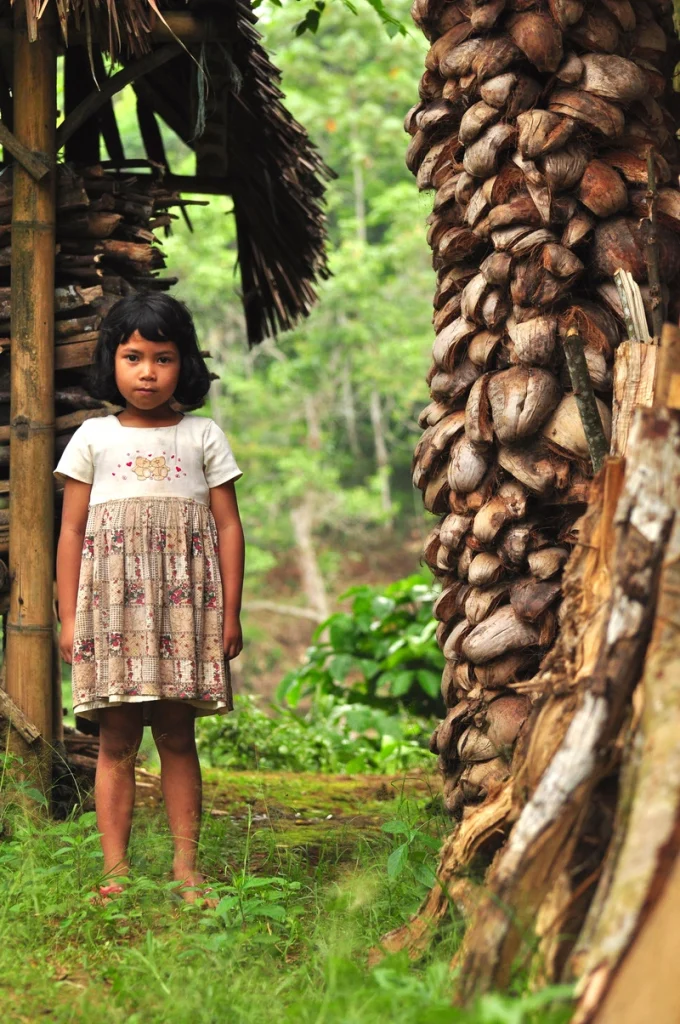
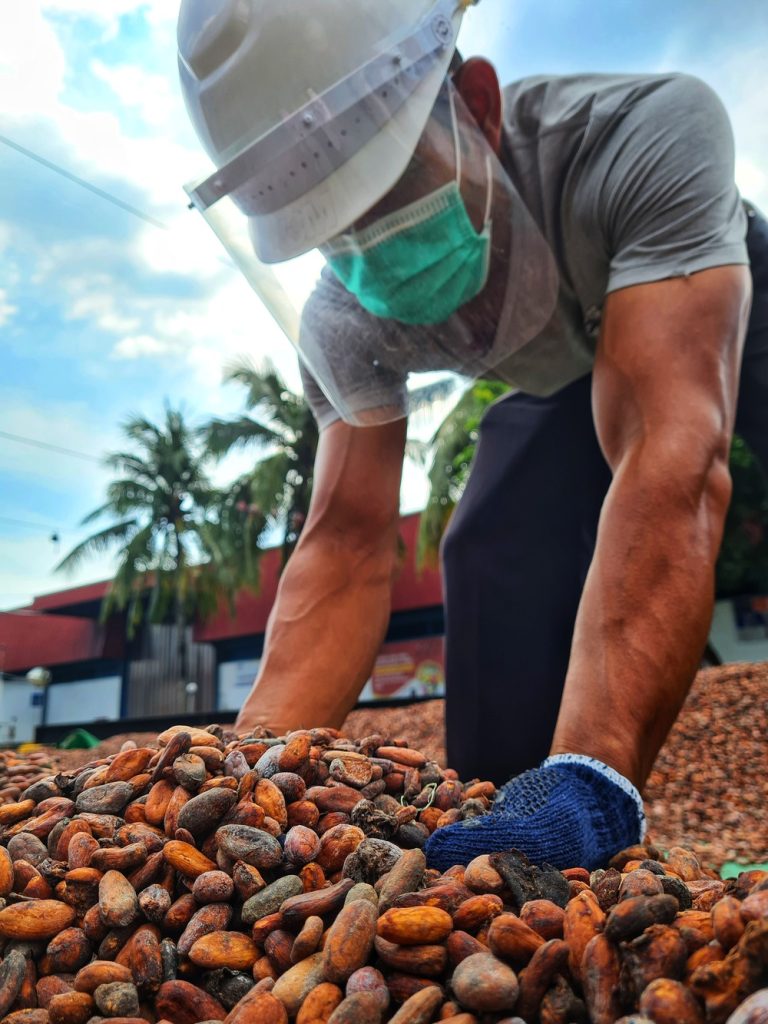
Empowering Cocoa Farmers: A Holistic Livelihood Strategy
Barry Callebaut supports cocoa farmers in achieving sustainable livelihoods and escaping poverty through a comprehensive approach that improves farm productivity, financial access, and market integration. These efforts are directly aligned with multiple UN Sustainable Development Goals (SDGs).
Pillars of Barry Callebaut’s farmer empowerment strategy:
Productivity enhancement :
Through the adoption of Good Agricultural Practices (GAP) and the distribution of high-yielding, resilient cocoa seedlings, the company has helped smallholders boost farm output.Fair income assurance :
Via Direct Sourcing Programs, farmers can sell cocoa directly to Barry Callebaut and receive premium prices for verified sustainable cocoa.Access to financial services :
In partnership with local financial institutions, the company facilitates access to microloans and working capital for farm investments, equipment upgrades, and climate-resilient technologies.
This integrated approach ” combining training, financial empowerment, and market connectivity ” strengthens the economic resilience of cocoa-growing communities while advancing an equitable and transparent supply chain.
Carbon Reduction and Forest Protection Commitments
In line with its goal of achieving a “carbon-positive footprint,” Barry Callebaut is heavily investing in renewable energy adoption and agroforestry systems. These efforts support GHG emissions reduction, enhanced carbon sequestration, and ecological restoration in degraded cocoa landscapes.
The company plants over 2 million trees annually in cocoa-growing regions and funds reforestation projects aimed at restoring soil health and biodiversity.
Furthermore, Barry Callebaut is a key signatory to the Cocoa & Forests Initiative (CFI). Through this collaboration, the company commits to:
Establishing a deforestation-free supply chain
Promoting sustainable land-use practices
Enhancing farmer incomes through environmental stewardship
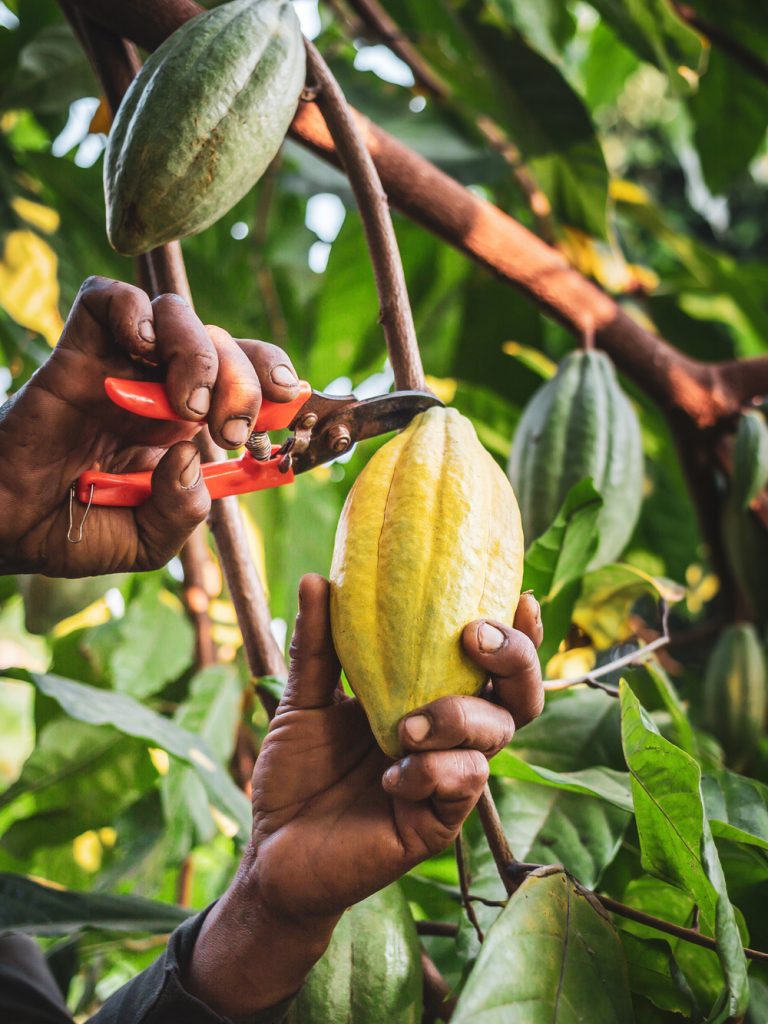
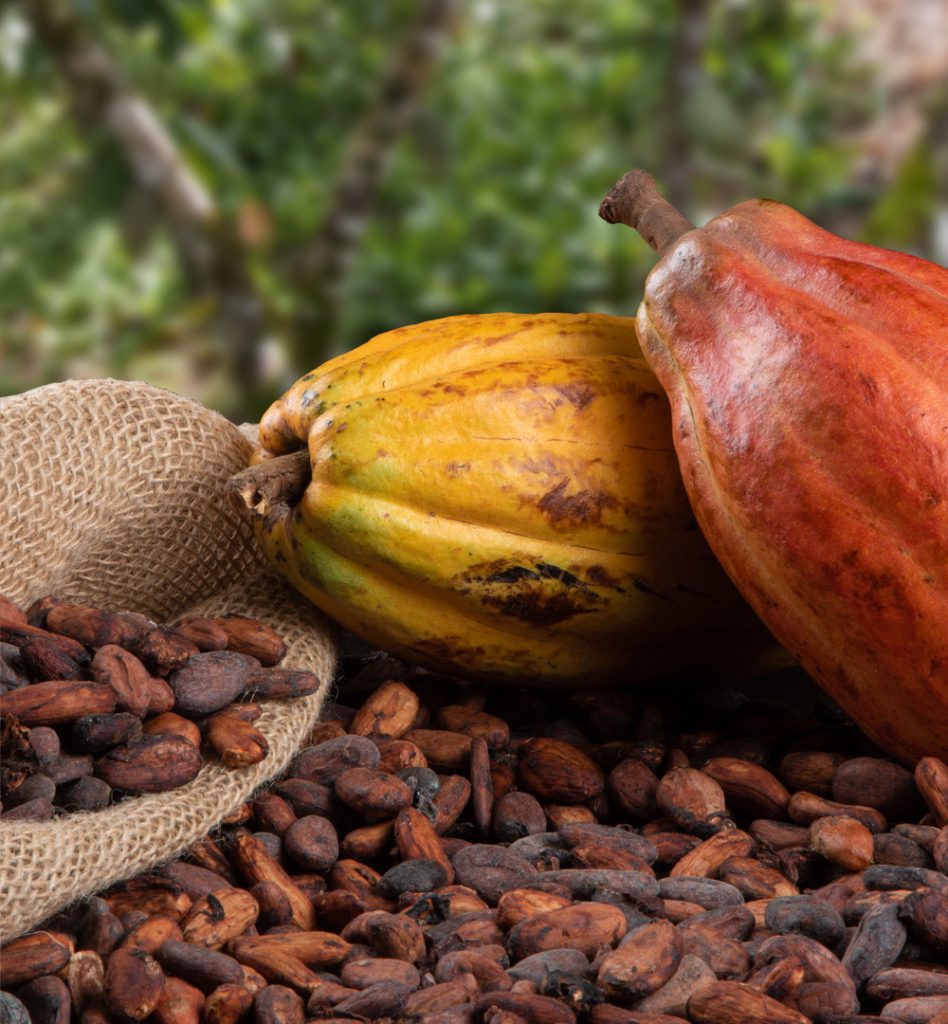
Responsible Sourcing of Raw Materials
To ensure the integrity and sustainability of its cocoa and chocolate supply, Barry Callebaut sources exclusively from farms certified by internationally recognized sustainability schemes such as Rainforest Alliance and Fairtrade.
The company also publishes annual supply chain transparency reports, enabling traceability of its cocoa origins and documenting progress toward full sustainability compliance.
This commitment to traceable and verified sourcing is central to the company’s long-term sustainability vision, contributing to environmental protection, social equity, and ethical procurement practices across its global operations.
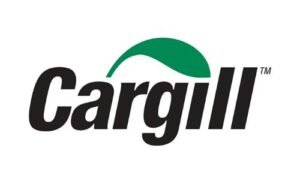
Cargill Cocoa Promise : A Holistic Approach to Cocoa Sustainability
What is the Cargill Cocoa Promise, and how does it contribute to sustainable cocoa production?
Through its dedicated initiative—the Cargill Cocoa Promise—Cargill Gerkens aims to promote sustainable agricultural practices, eliminate deforestation, and enhance the livelihoods of cocoa farming communities. The program transforms the cocoa supply chain by addressing three interdependent priorities:
improving farmer income and resilience
increasing end-to-end supply chain transparency
protecting natural ecosystems through agroforestry and climate-smart methods
These integrated efforts have positioned Cargill as a leading global actor in advancing long-term cocoa sustainability.
How does Cargill improve farmer livelihoods?
Empowering Cocoa Farmers: Economic Resilience Through Capacity Building
Cargill supports over 200,000 cocoa farmers annually through targeted training and digital tools aimed at increasing productivity and income stability. Training topics include climate-smart agriculture, farm business management, and good agricultural practices (GAP). These interventions aim to make farmer incomes more predictable and resilient to market volatility and climate stressors.
One of the core enablers is FarmForce, a digital farm-level management platform. This tool allows farmers to track farm performance, input usage, and income flows in real time, enabling data-driven decisions and long-term planning.
Additionally, Cargill delivers financial literacy programs and encourages crop diversification to help farmers build multi-stream incomes that are less vulnerable to external shocks.
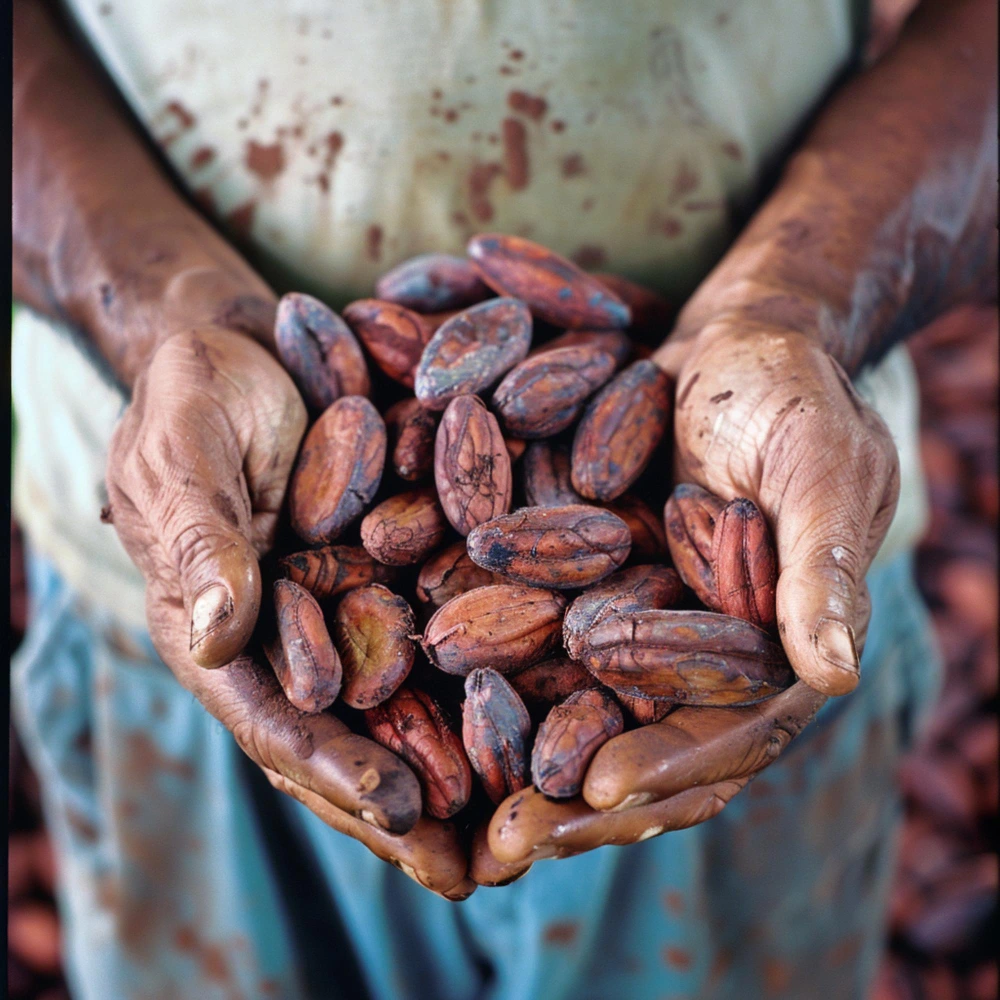
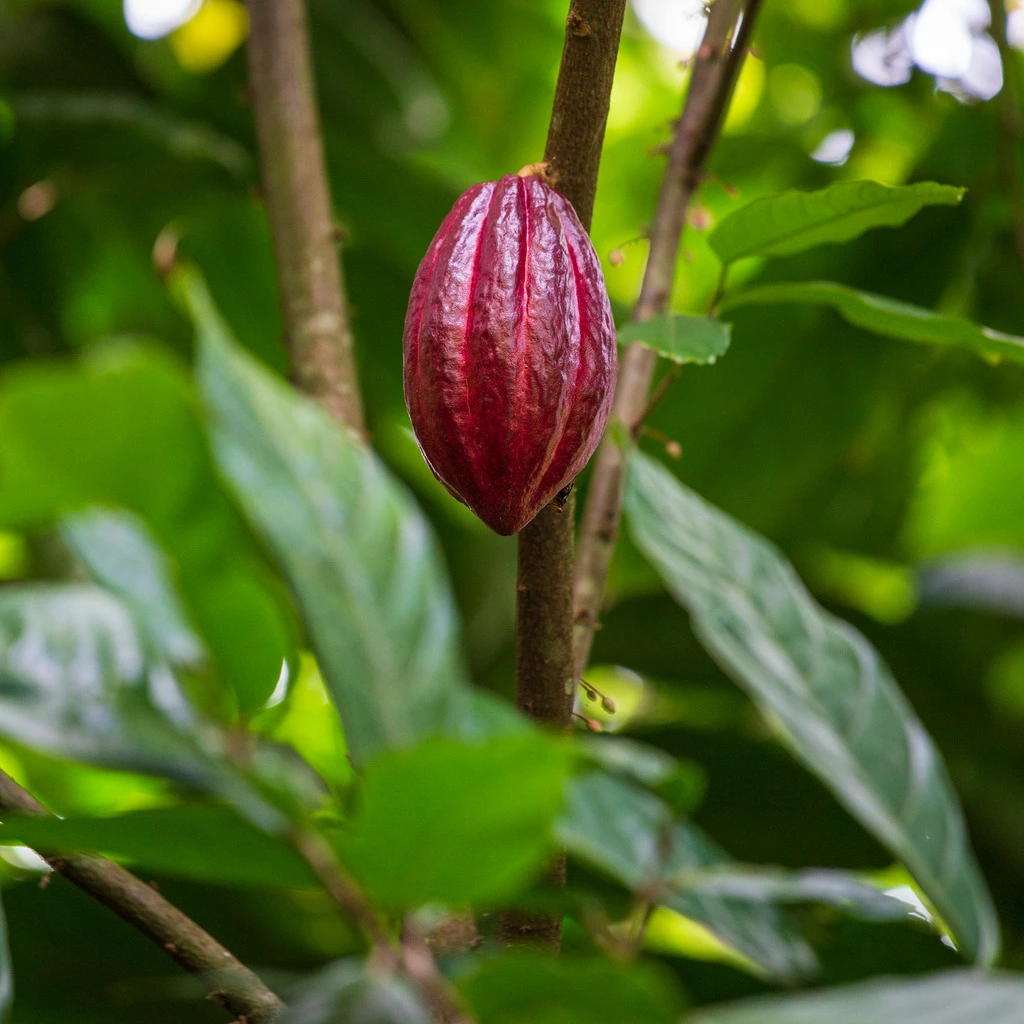
How does Cargill protect biodiversity and natural resources in cocoa-growing regions ?
Environmental Stewardship in Cocoa Landscapes
Cargill implements agroforestry systems by integrating shade trees into cocoa farms. This practice enhances biodiversity, strengthens ecosystem services, and contributes to carbon sequestration.
To combat deforestation and habitat degradation, the company partners with the World Cocoa Foundation (WCF) and local governments. These collaborations aim to preserve forest cover, restore degraded land, and safeguard native species.
In parallel, Cargill utilizes scientific data and environmental research to improve soil health, optimize land productivity, and promote sustainable natural resource management—critical enablers of climate-resilient cocoa production systems.
How is Cargill leveraging blockchain for cocoa traceability ?
Cargill employs blockchain technology to enable full traceability of cocoa beans from farm to factory. Its goal is to achieve 100% traceability by 2025, enhancing consumer trust, eliminating opaque intermediaries, and supporting child labor risk mitigation within the supply chain.
Under its Sustainably Sourced framework, the company adheres to international sustainability standards such as ISO 34101, ensuring that sourced cocoa complies with rigorous criteria for sustainable farming, social responsibility, and environmental protection.
Cargill also publishes regular transparency reports, documenting key metrics such as farmer income improvements, training coverage, environmental outcomes, and the measurable impact of its interventions. These disclosures are a cornerstone of the company’s commitment to accountability and ethical supply chain governance.

Olam DeZaan’s Strategy to Redefine Cocoa Sustainability
As one of the leading suppliers of premium cocoa ingredients, Olam DeZaan has embedded sustainability as a core principle across its cocoa supply chain. Through its long-term initiative, the Cocoa Compass, the company has committed to achieving full elimination of child labor, raising farmer incomes, and producing deforestation-free cocoa by 2030.
This strategy is built upon four interdependent pillars that guide Olam’s sustainability roadmap in cocoa-producing regions.
Economic Empowerment of Cocoa Farmers
To improve farmer livelihoods, Olam has implemented an integrated income strategy aimed at increasing net farmer income by at least 20%. The approach includes:
Enhancing farm productivity through training and improved agronomic practices
Facilitating access to diversified markets and fair pricing mechanisms
Promoting income diversification (e.g., small livestock, secondary crops, off-farm activities)
To build financial resilience among rural households, Olam supports:
Financial literacy training
Village savings and loan associations (VSLAs)
Access to microfinance institutions for reinvestment in farm assets and community development
These measures enable farmers to establish more stable income cycles and invest in long-term farm sustainability.
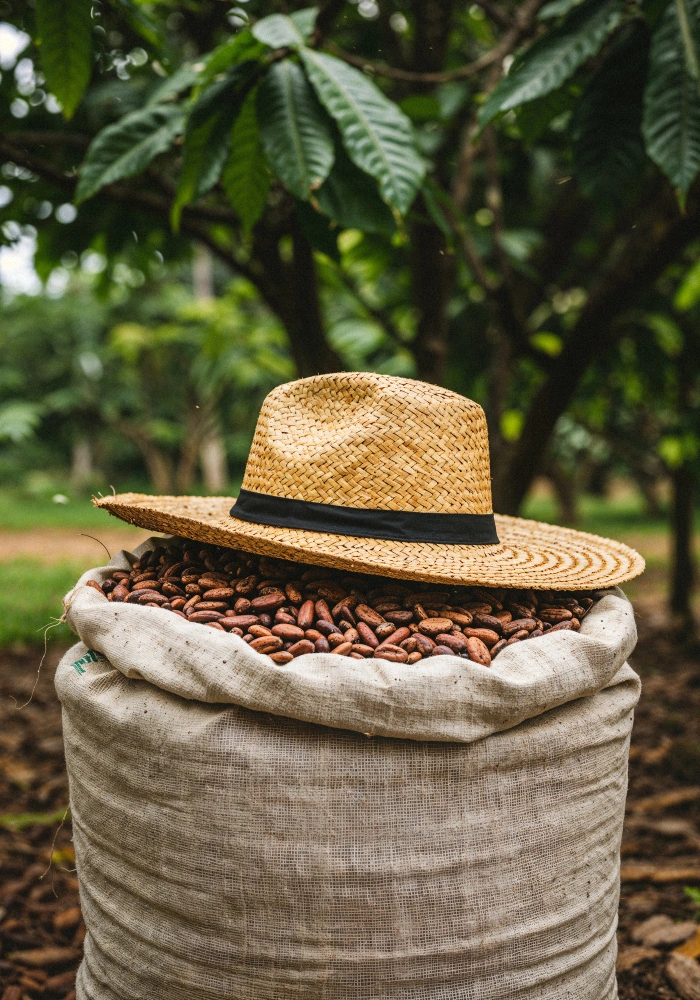
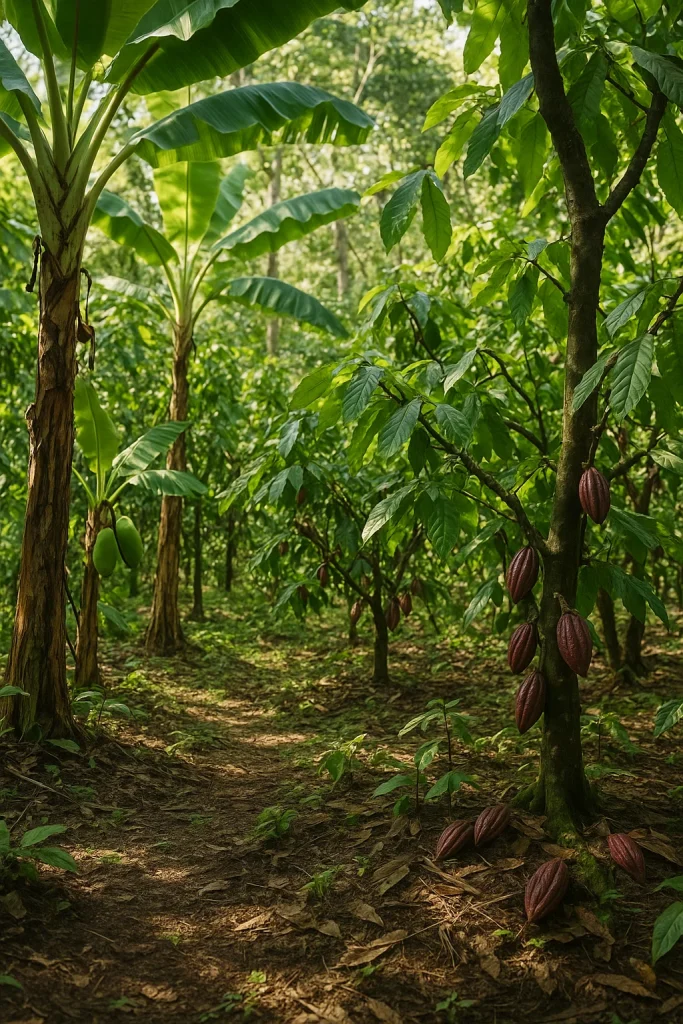
Environmental Stewardship Through Climate-Smart Agriculture
Olam integrates climate-smart agricultural practices to conserve natural resources and enhance biodiversity in cocoa-growing ecosystems. The company widely promotes agroforestry systems, intercropping cocoa with native shade trees to:
Prevent soil degradation and erosion
Protect and restore natural habitats
Enhance carbon sequestration and ecosystem services
Further efforts include:
Water resource management
Reforestation and vegetation cover restoration
Capacity-building for farmers on climate adaptation and mitigation techniques
These activities support the development of resilient, low-carbon cocoa farms and safeguard local ecological integrity in the face of climate volatility.
How Olam Transformed the Lives of 150,000 Cocoa Farmers
With a people-centered approach to cocoa sustainability, Olam has reached over 150,000 cocoa-producing households through community development programs focused on:
1. Access to Basic Services and Gender Equity
Delivery of rural education, primary healthcare, and nutrition programs
Women’s empowerment initiatives to increase participation in household and farm decision-making
2. Child Labor Monitoring and Remediation
In collaboration with NGOs and multi-stakeholder platforms, Olam has rolled out a Child Labor Monitoring and Remediation System (CLMRS) across its cocoa supply chains.
This system actively identifies, reports, and remediates cases of child labor, ensuring compliance with global human rights standards and improving social outcomes in cocoa communities.
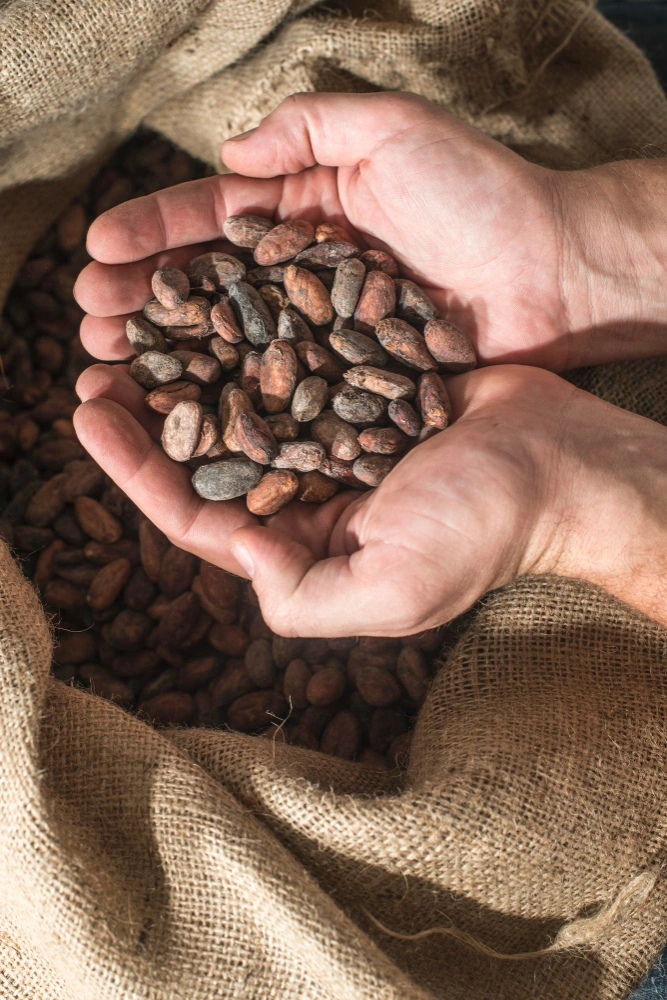
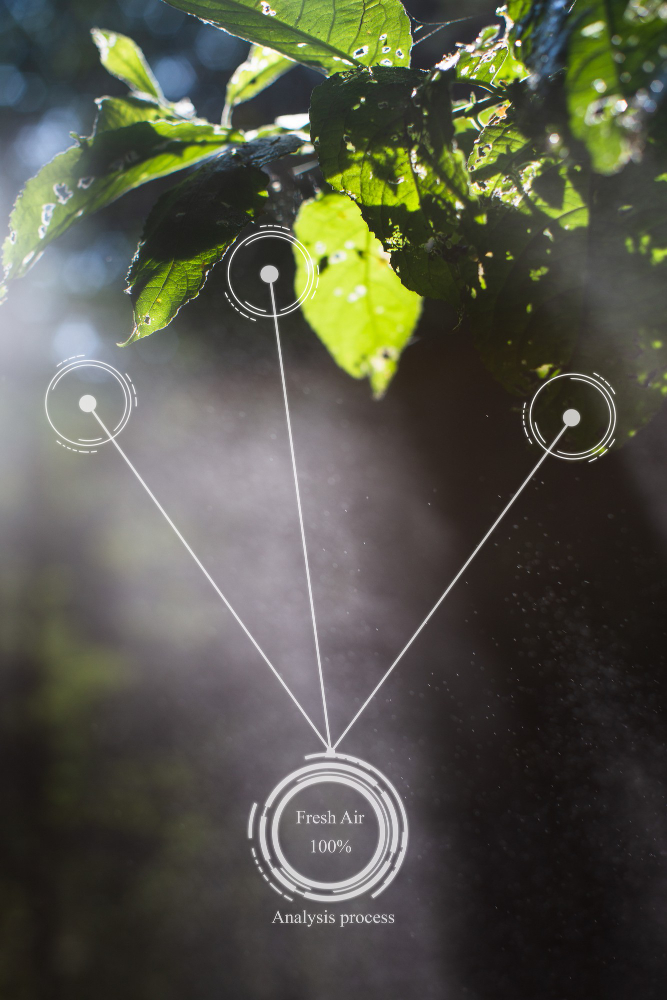
Leveraging AI for Deforestation-Free Cocoa Production
Olam harnesses cutting-edge technologies ” including satellite imagery and AI ” to monitor deforestation risks, assess farm-level productivity, and evaluate ecosystem health in real time.
To enhance end-to-end supply chain transparency, Olam developed the AtSource digital platform. AtSource provides granular insights into the social, environmental, and economic footprint of cocoa sourced through Olam’s networks.
The enhanced version, AtSource+, allows customers to track, measure, and verify sustainability metrics across the value chain using dynamic data analytics.
These innovations empower stakeholders to make informed procurement decisions while accelerating the delivery of deforestation-free cocoa, supply chain decarbonization, and improved livelihoods for cocoa farmers.
Barry Callebaut | Sustainable Chocolate Amid Poverty and Regional Complexity
While Barry Callebaut has made significant strides in eliminating child labor, enhancing supply chain transparency, and improving farmer training, the company still contends with structural challenges notably chronic poverty among smallholder farmers, cultural and climatic heterogeneity, and uneven adoption of sustainability standards across producing regions.
Cargill | Integrating Technology, Training, and Local Adaptation
Cargill’s sustainability model emphasizes technological innovation, farmer education, and NGO partnerships. However, limited access to resources, inadequate rural infrastructure, and climate diversity have slowed the consistent rollout of sustainable cocoa initiatives across its sourcing regions.
Olam DeZaan | Aligning Global Ambitions with Local Realities
Olam’s comprehensive strategy focuses on aligning global sustainability goals with local agricultural realities. Yet, challenges remain particularly the slow uptake of climate-smart agricultural practices, infrastructure deficiencies, and insufficient capacity building among farming communities.
Challenges Facing Leading Cocoa Sustainability Brands
Despite notable progress, companies such as Barry Callebaut, Cargill and Olam DeZaan continue to face persistent barriers that complicate the implementation of sustainable cocoa practices at scale. These include enduring farmer poverty, climatic variability, weak rural infrastructure, and resistance to agricultural transformation in certain regions.



Sustainability Strategies in the Global Cocoa Industry
A Comparative Overview of Barry Callebaut, Cargill Gerkens, and Olam DeZaan
Amid growing global concerns over child labor, farmer poverty, and environmental degradation in cocoa supply chains, leading companies in the sector have adopted diverse strategies to advance cocoa sustainability. This section outlines three major frameworks implemented by key market players.
Barry Callebaut | Forever Chocolate Strategy + ESG Integration
Strategic Vision :
Barry Callebaut aims to make sustainable chocolate the industry norm by 2025 through its long-term Forever Chocolate initiative. The company has embedded ESG principles (Environmental, Social, Governance) into its corporate values and operational strategies, positioning sustainability as both a business and ethical imperative.
Key Commitments:
Eliminate all forms of child labor from its supply chain by 2025
Ensure all cocoa farmers achieve a living income
Source 100% sustainable ingredients for all chocolate products
Achieve full deforestation-free supply chains
ESG Alignment :
Environment: Decarbonization, natural resource management, regenerative agriculture
Social: Human rights, community empowerment, gender equity
Governance: Transparent traceability, anti-corruption, advanced reporting systems
Core Values :
Barry Callebaut’s sustainability strategy is driven by values such as ethical innovation, transparency, community engagement, and global accountability. These values align the company with the broader objectives of the United Nations Sustainable Development Goals (SDGs).
🔗 Official ESG Policy – Barry Callebaut
🔗 Company Vision & Values Statement

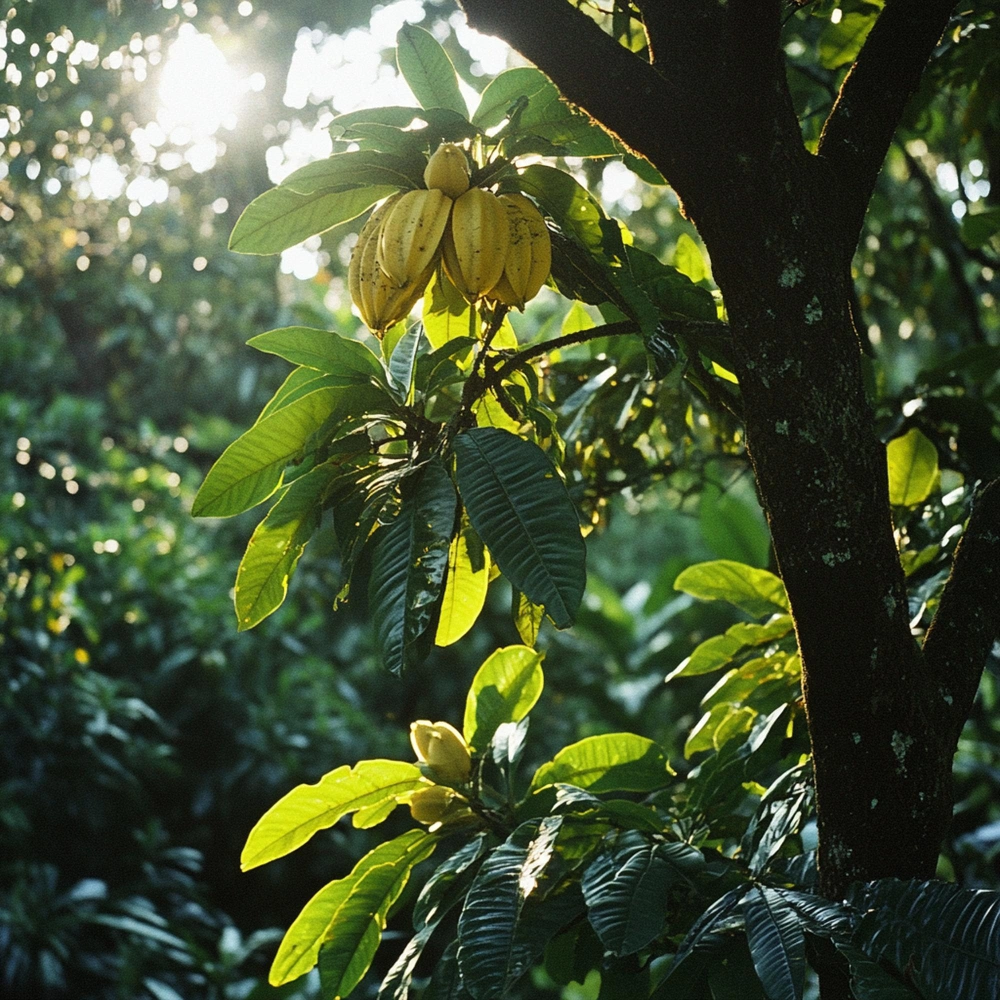
Cargill Gerkens | Cargill Cocoa Promise Program
Strategic Vision :
Cargill has adopted a collaborative and education-driven approach aimed at building a resilient, transparent, and sustainable cocoa supply chain. Leveraging ag-tech innovations, farmer training, and NGO partnerships, the company seeks to scale its impact globally by 2030.
Key Commitments :
Enhance end-to-end traceability from farm to factory
Train farmers in climate-smart agricultural practices
Align operations with the UN SDGs
Improve the livelihoods of over 220,000 cocoa-farming households
Combat deforestation through agroforestry initiatives
Olam DeZaan | Cocoa Compass Roadmap
Strategic Vision :
Olam DeZaan’s Cocoa Compass aims to eradicate child labor, increase farmer productivity, and achieve 100% sustainable cocoa sourcing by 2030. The strategy is rooted in aligning global sustainability objectives with local realities in cocoa-producing communities.
Key Commitments :
End child labor in the cocoa supply chain
Improve farmer productivity and income resilience
Ensure zero negative impact on natural ecosystems
Protect biodiversity in high-risk landscapes
Align with 10 out of the 17 UN Sustainable Development Goals
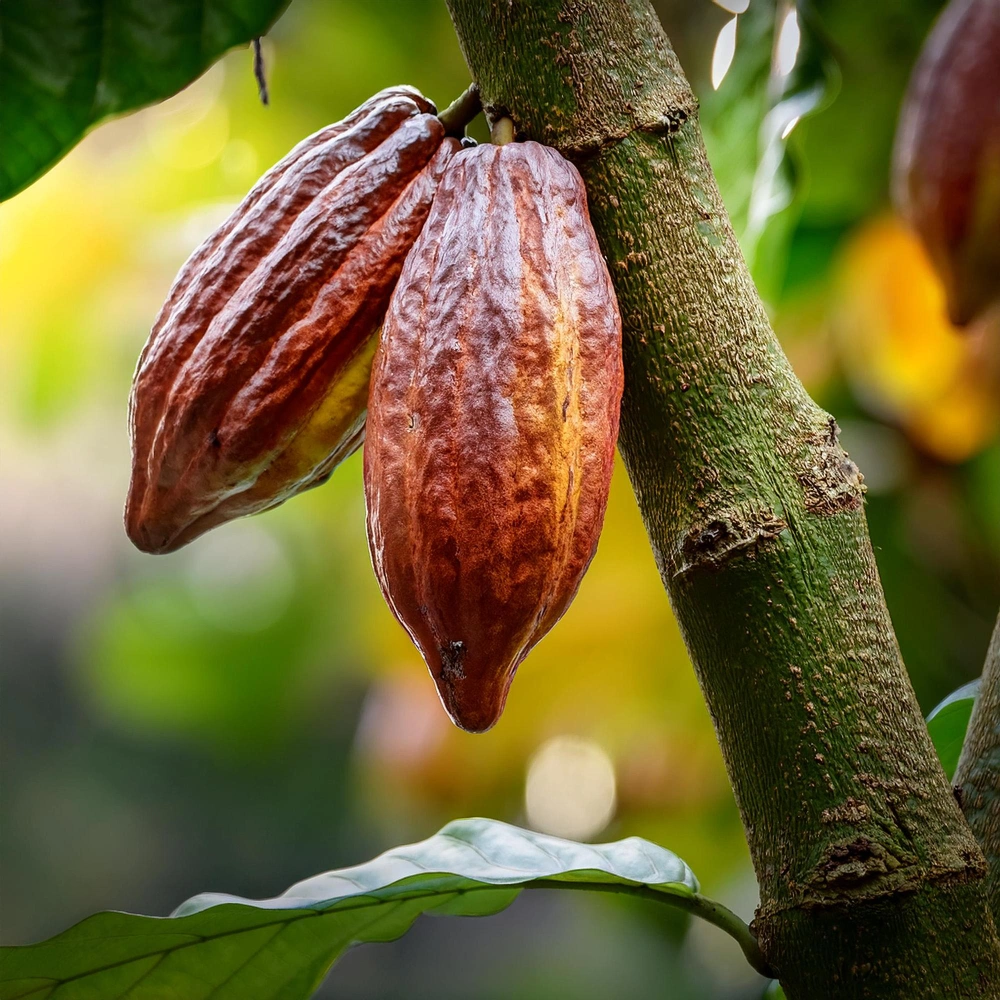
How do cocoa sustainability strategies differ across leading brands?
Comparing Barry Callbut, Cargill Gerkens and Ulm Dezan
Barry Callebaut, Cargill, and Olam DeZaan share common sustainability goals ” such as eliminating child labor and improving farmers’ livelihoods ” but pursue them through distinct implementation strategies. Barry Callebaut focuses on measurable impact targets to be achieved by 2025, Cargill prioritizes farmer training and supply chain transparency, while Olam emphasizes aligning global sustainability objectives with local realities.
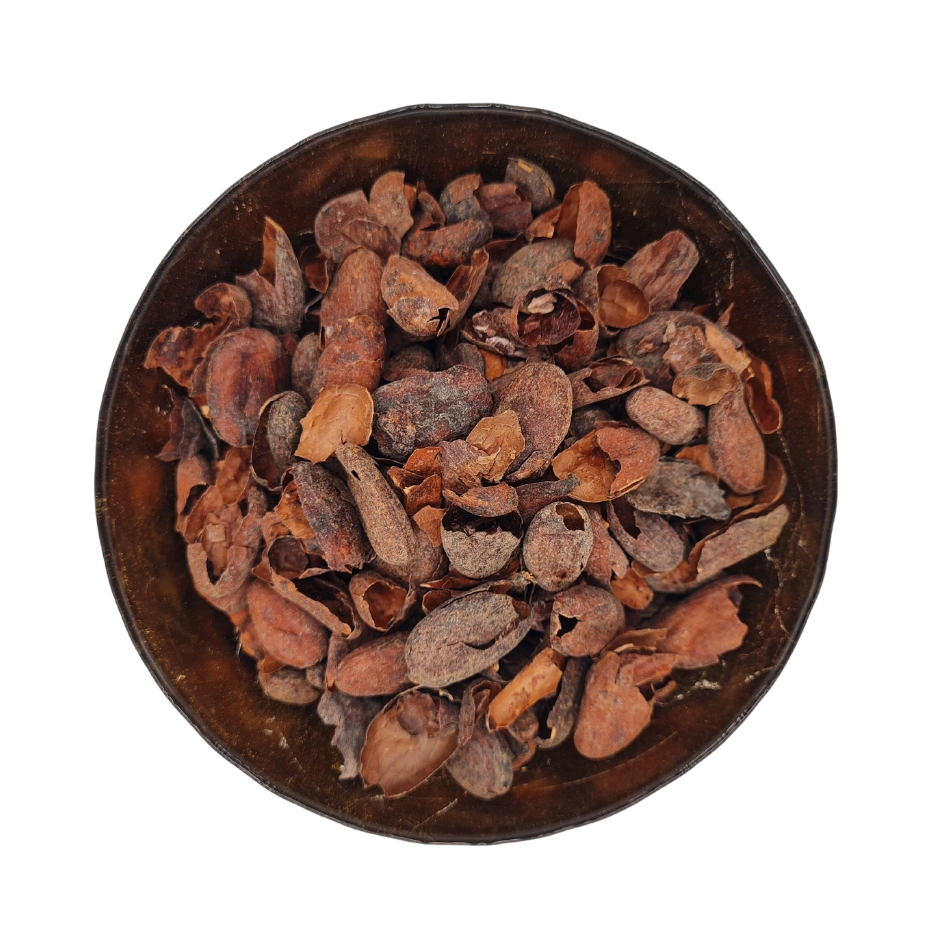
Cocoa Bean Shell: From Industrial Waste to a Nutrient-Rich & Sustainable Ingredient
From waste reduction to fiber and antioxidant enrichment, cocoa bean shell opens new opportunities for innovation and sustainability in the food industry; make the smart choice today for a healthier tomorrow.
- Related articles
1. Core Focus Areas on the Path to Sustainability
Barry Callebaut aims to make sustainable chocolate the industry norm by 2025 through its Forever Chocolate initiative, targeting key issues such as child labor and farmer poverty.
Cargill prioritizes farmer training, capacity building, and the digital transformation of supply chains to drive inclusive growth.
Olam DeZaan takes a glocal approach ” integrating global sustainability goals with local realities ” focusing on farmer resilience and climate-smart production systems.
2. Digital Innovation and Data-Driven Tools
Cargill uses platforms like FarmForce to support traceability, productivity tracking, and supply chain transparency.
Olam leverages AI, geospatial analytics, and the AtSource+ platform to monitor environmental and social impact in real time.
Barry Callebaut employs the Child Labor Monitoring and Remediation System (CLMRS) to identify, report, and address child labor cases across its cocoa value chain.
3. Environmental Protection and Deforestation Mitigation
Planting of millions of shade trees annually by Barry Callebaut in cocoa-growing regions.
Adoption of agroforestry and integration of native tree species by Olam to enhance biodiversity and landscape restoration.
Cargill’s collaboration with farmers in agroforestry practices to increase canopy coverage and improve ecological resilience.
4. Structural and Regional Barriers
Despite progress, all three companies face shared systemic challenges:
Persistent poverty among smallholder farmers
Low technology adoption in rural farming communities
Inadequate infrastructure that hampers program implementation
Climatic and cultural diversity, which complicates the scalability of sustainability programs
Conclusion: One Goal, Three Perspectives – Exploring Distinct Pathways Toward Ethical Cocoa Production
While Barry Callebaut, Cargill, and Olam pursue a shared vision of ethical cocoa sourcing, their approaches diverge based on strategy, scale, and regional engagement.
Barry Callebaut takes a goal-oriented, metrics-driven path with ambitious targets such as eliminating child labor and achieving full sustainability by 2025.
Cargill focuses on empowering farmers through data-driven decision-making, training, and decentralized agricultural innovation.
Olam emphasizes a landscape-level approach, combining regenerative agriculture with community empowerment and local climate adaptation.
All three companies contribute to a broader transformation of the cocoa sector, aligning commercial success with environmental stewardship and social equity.
